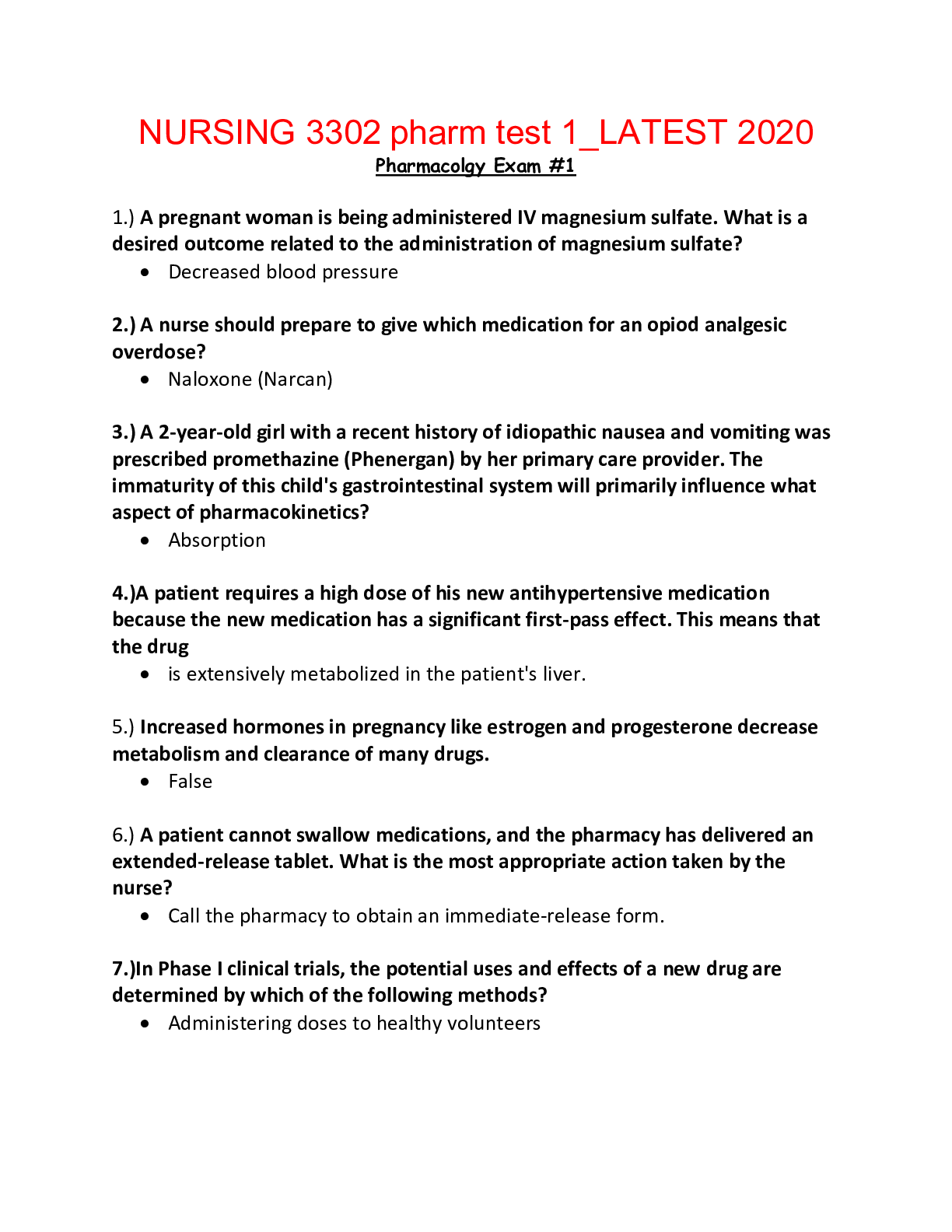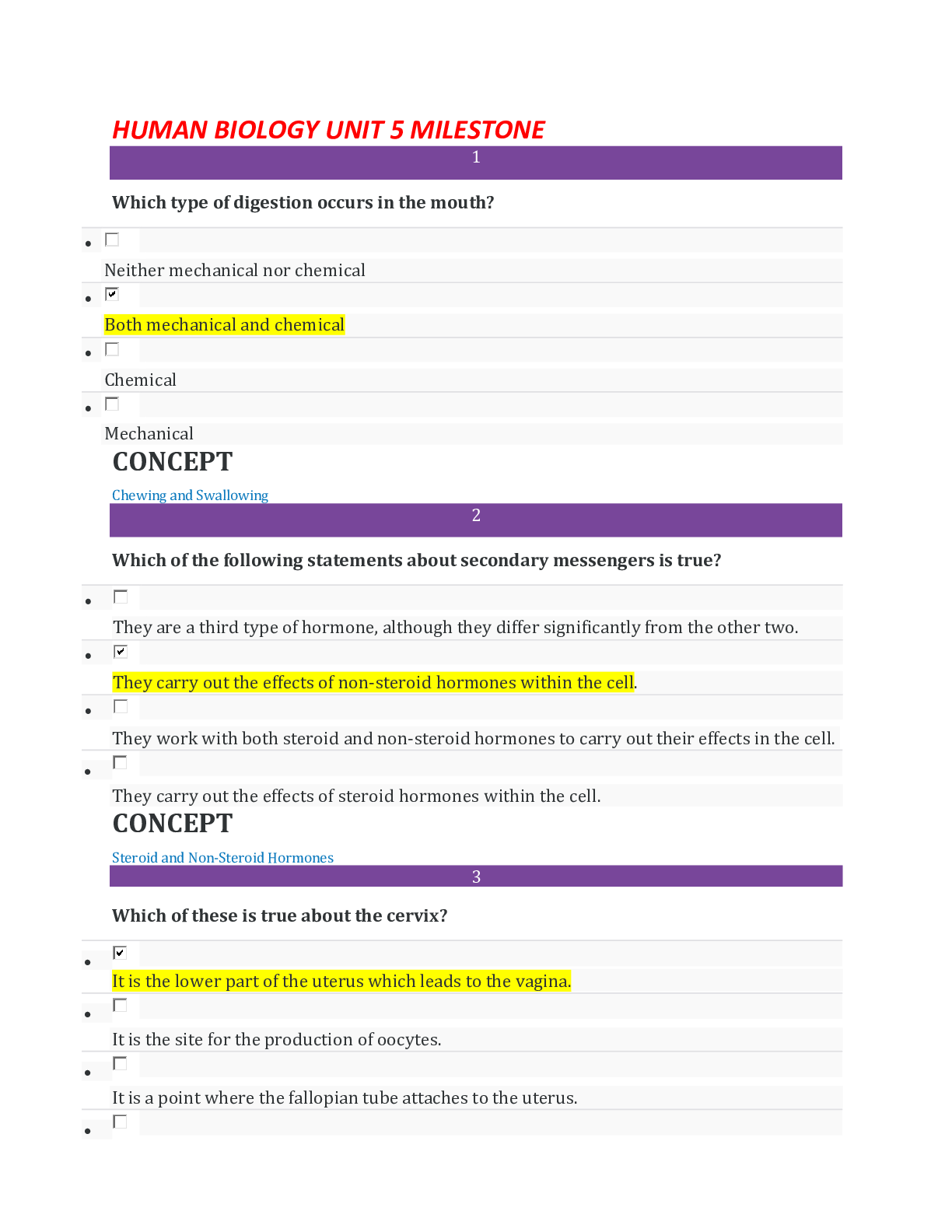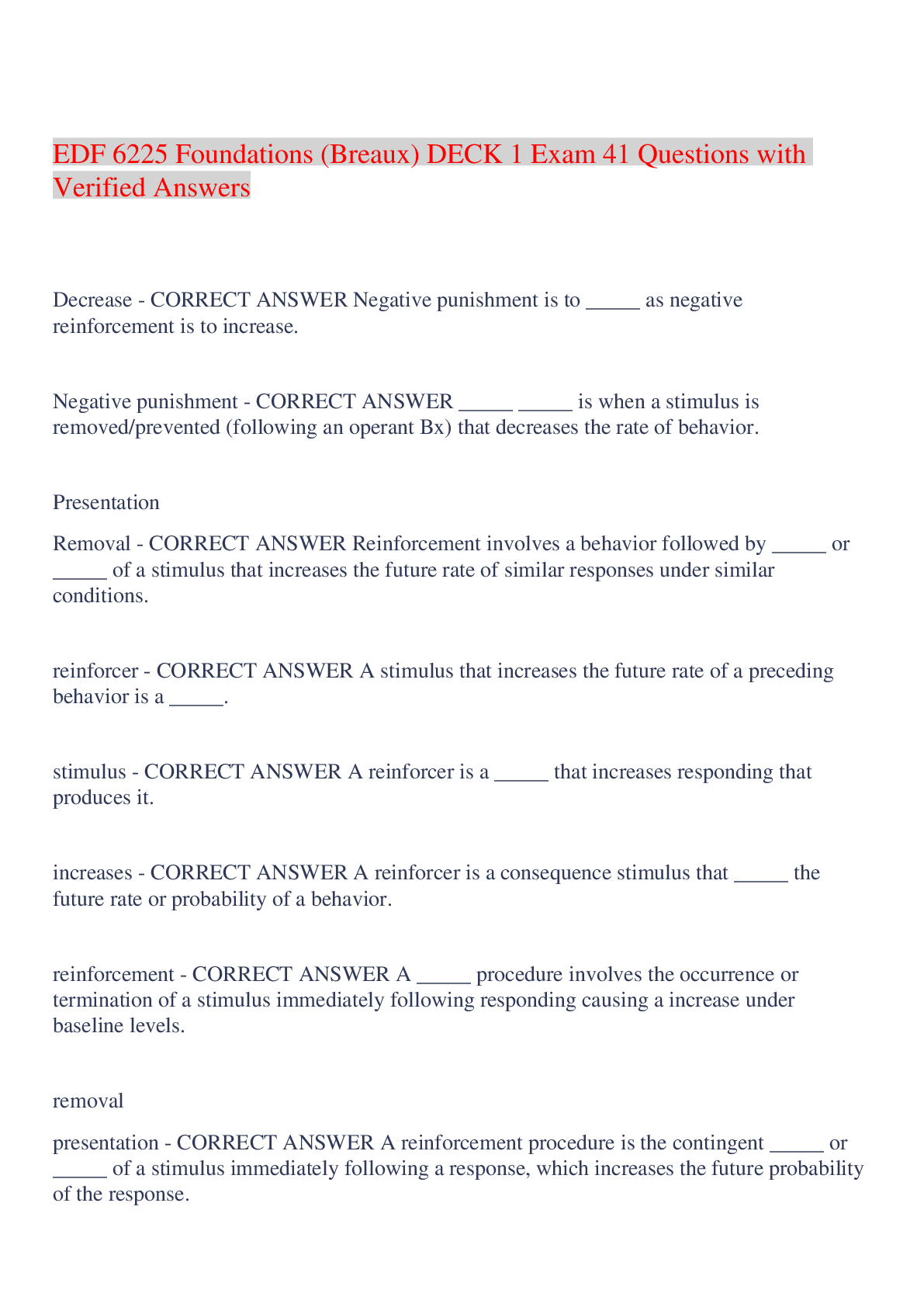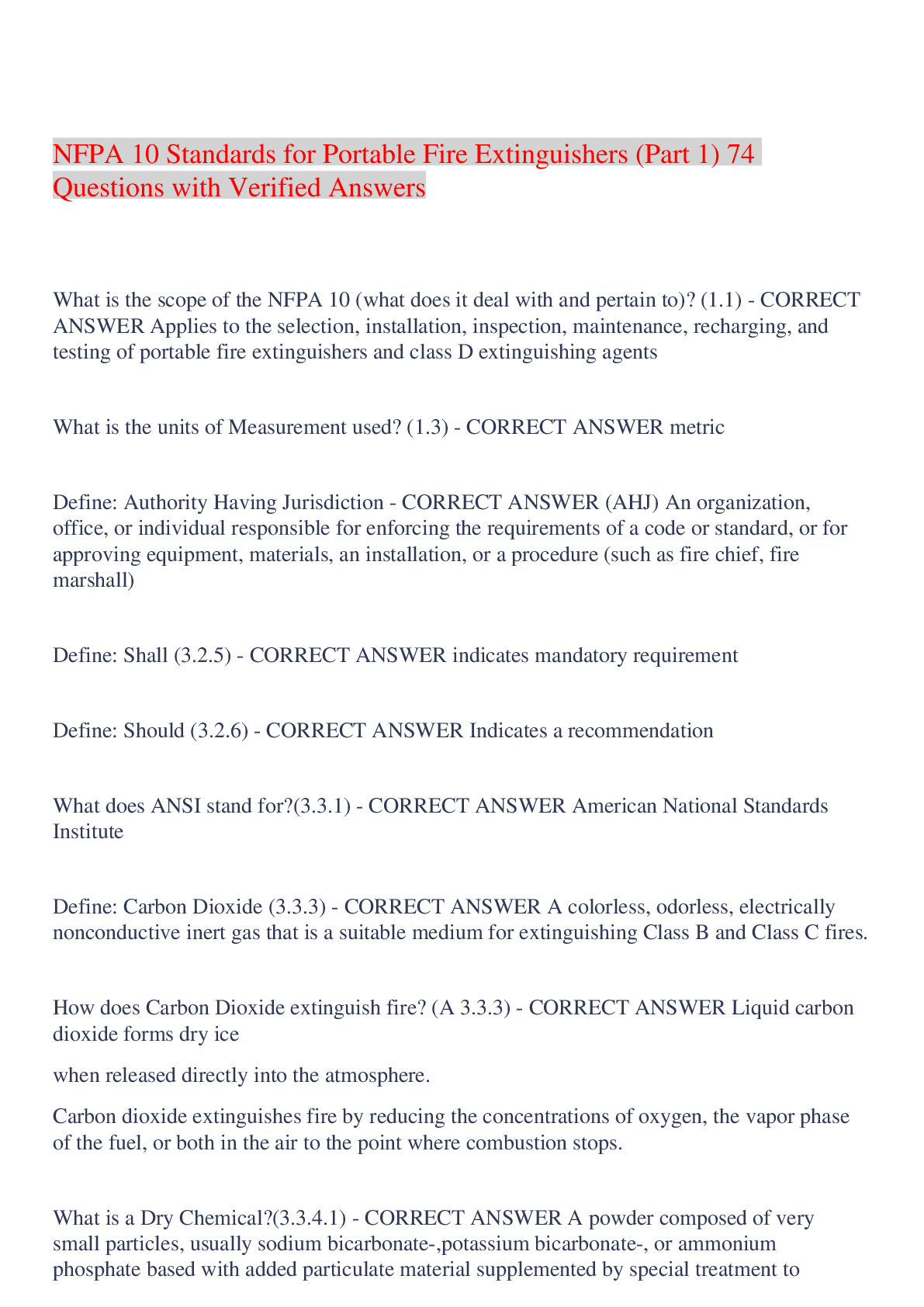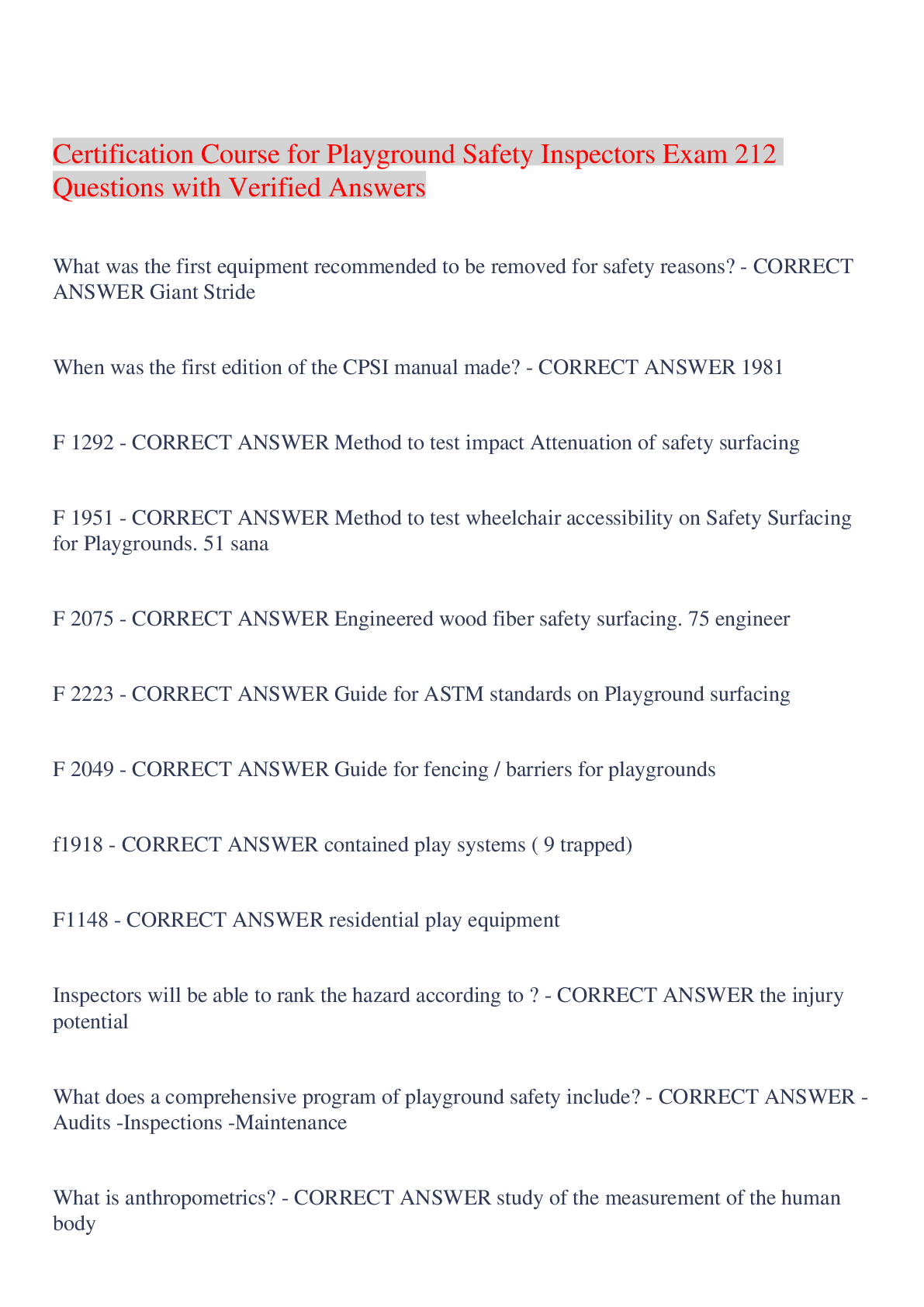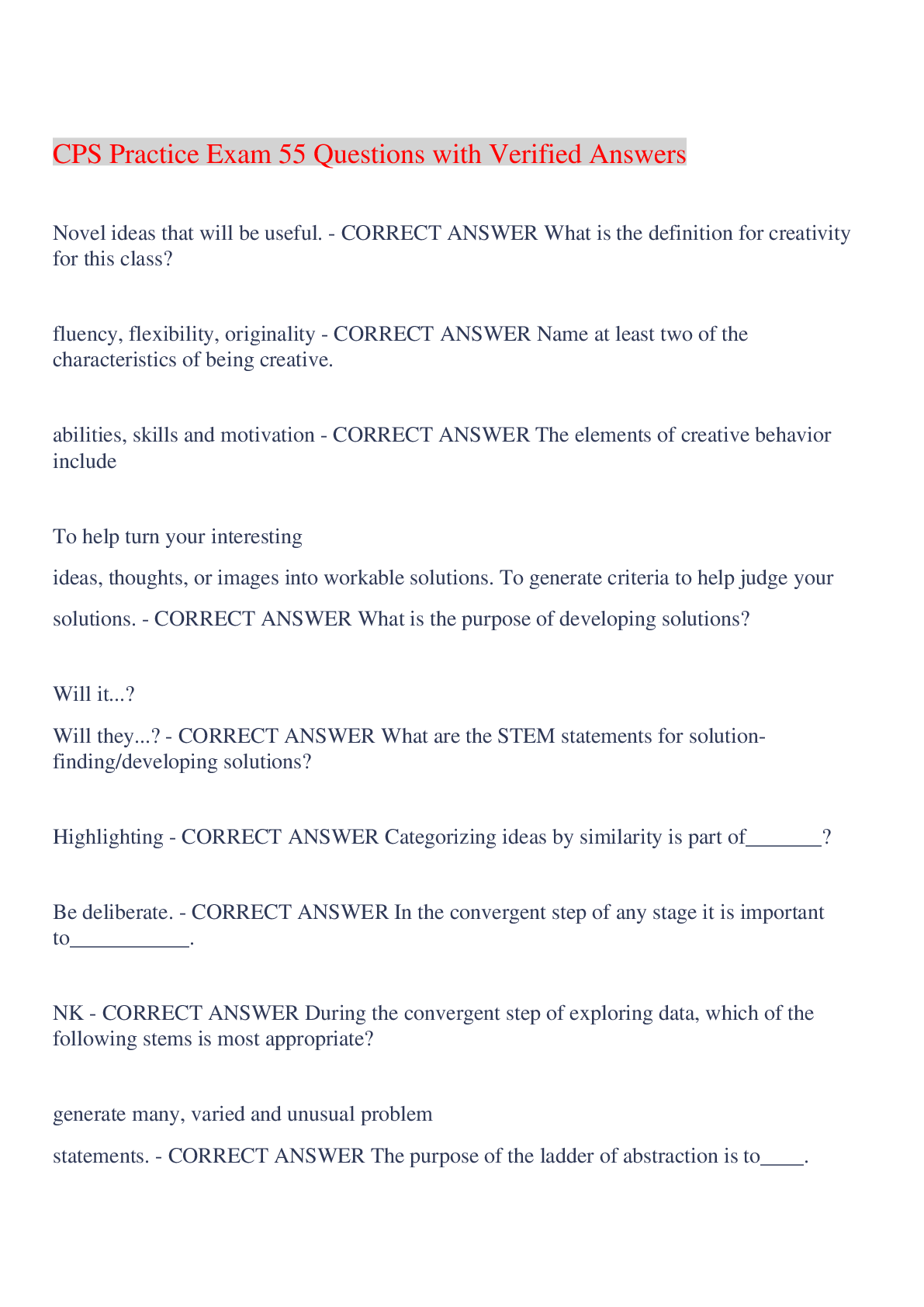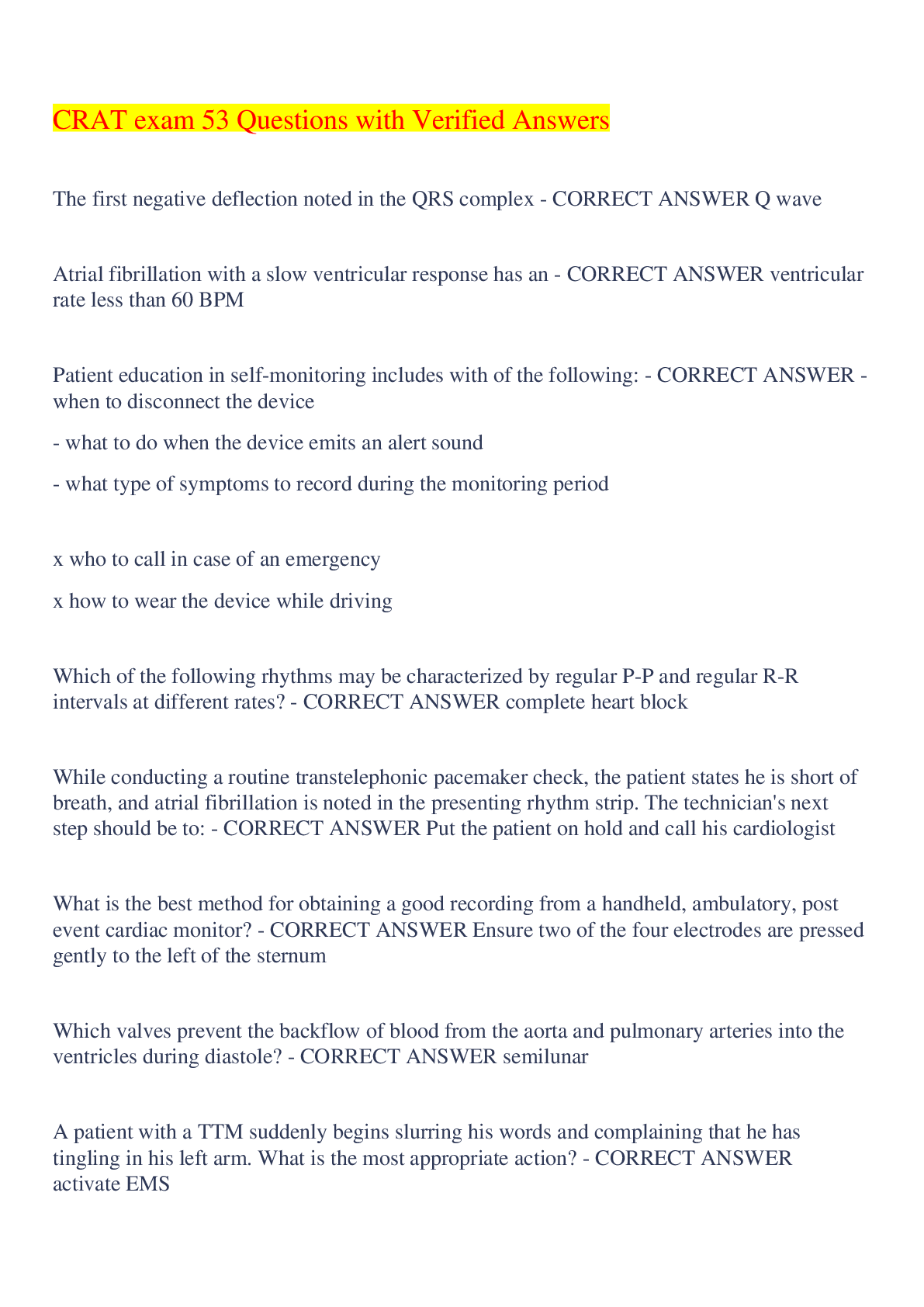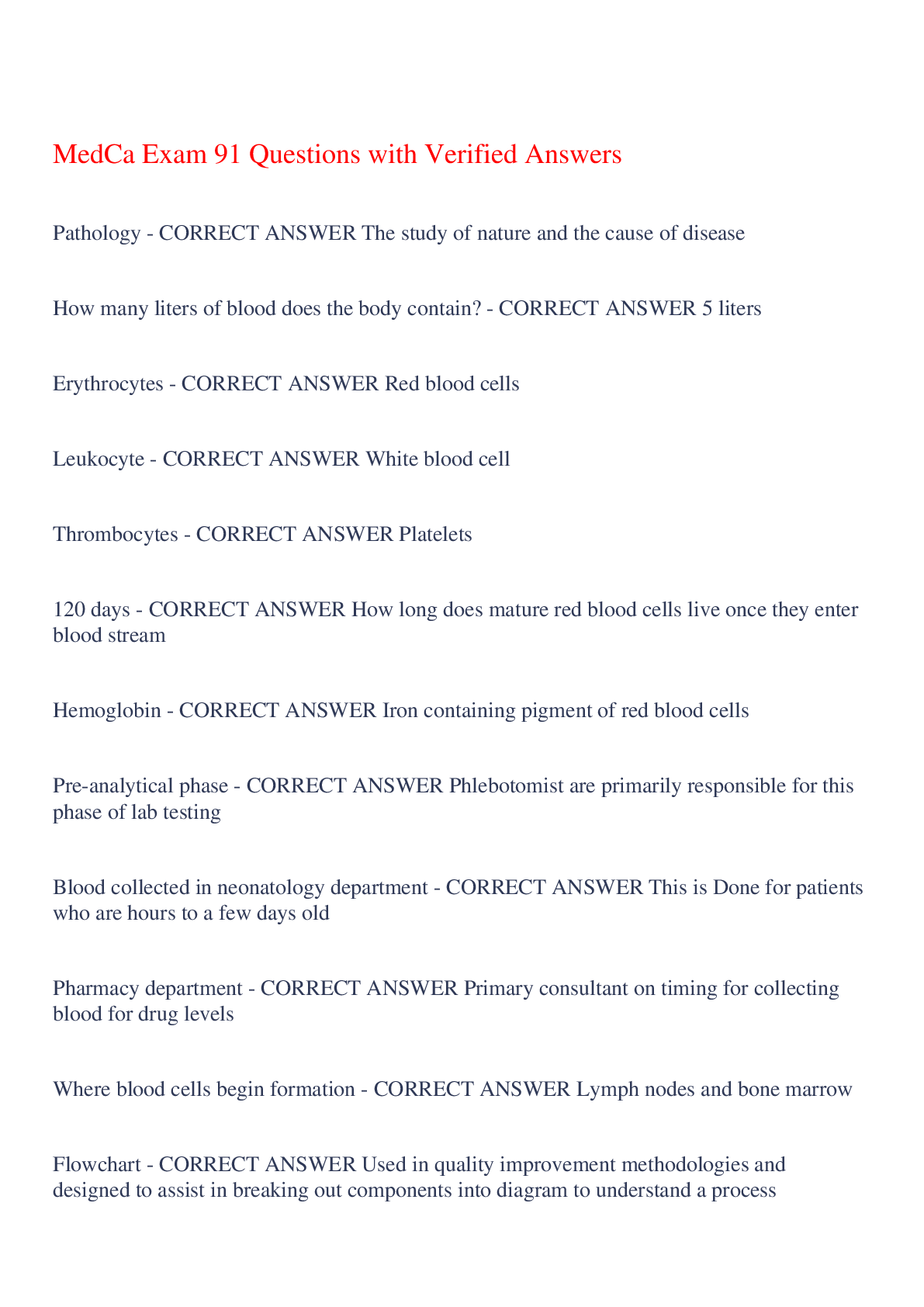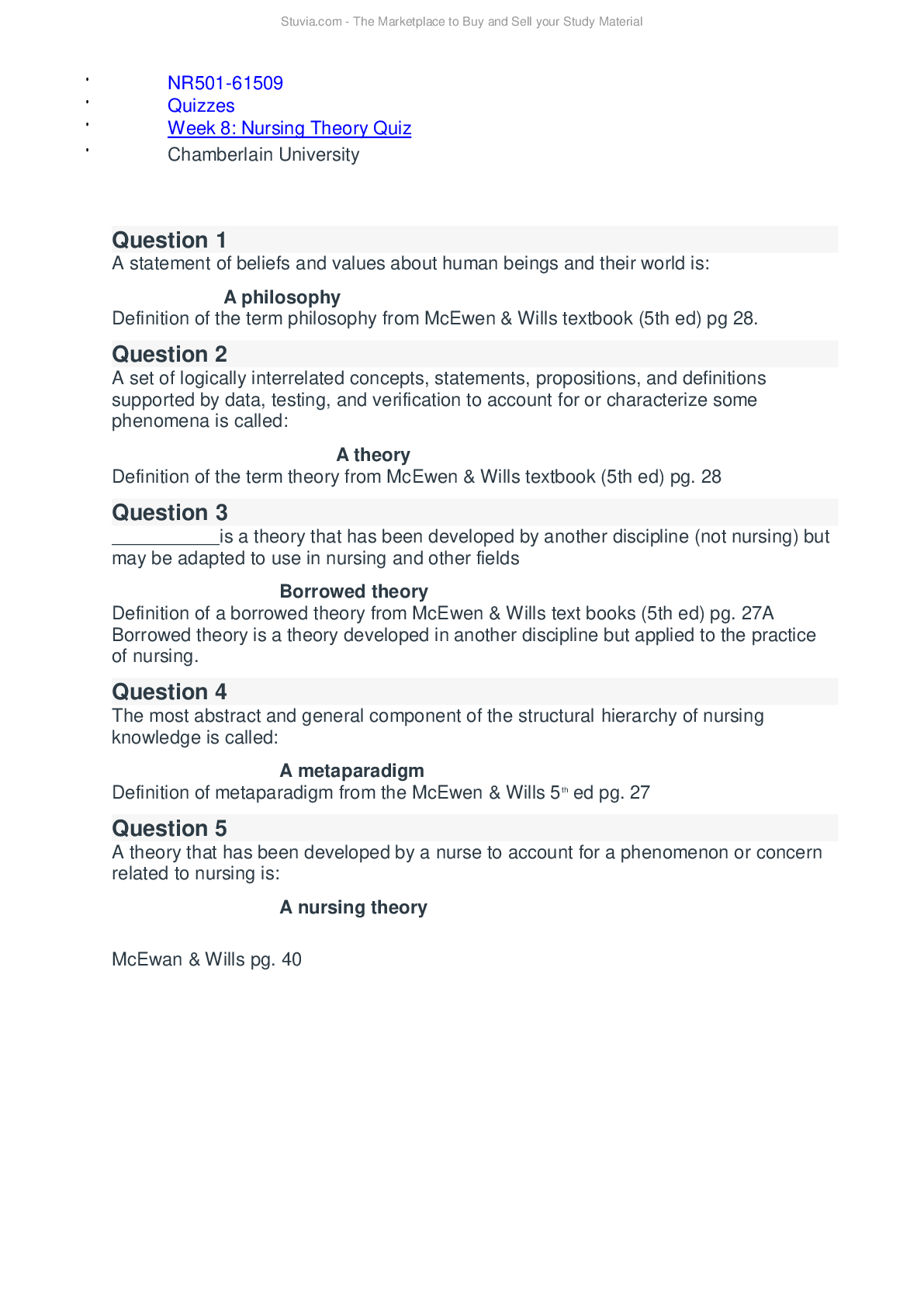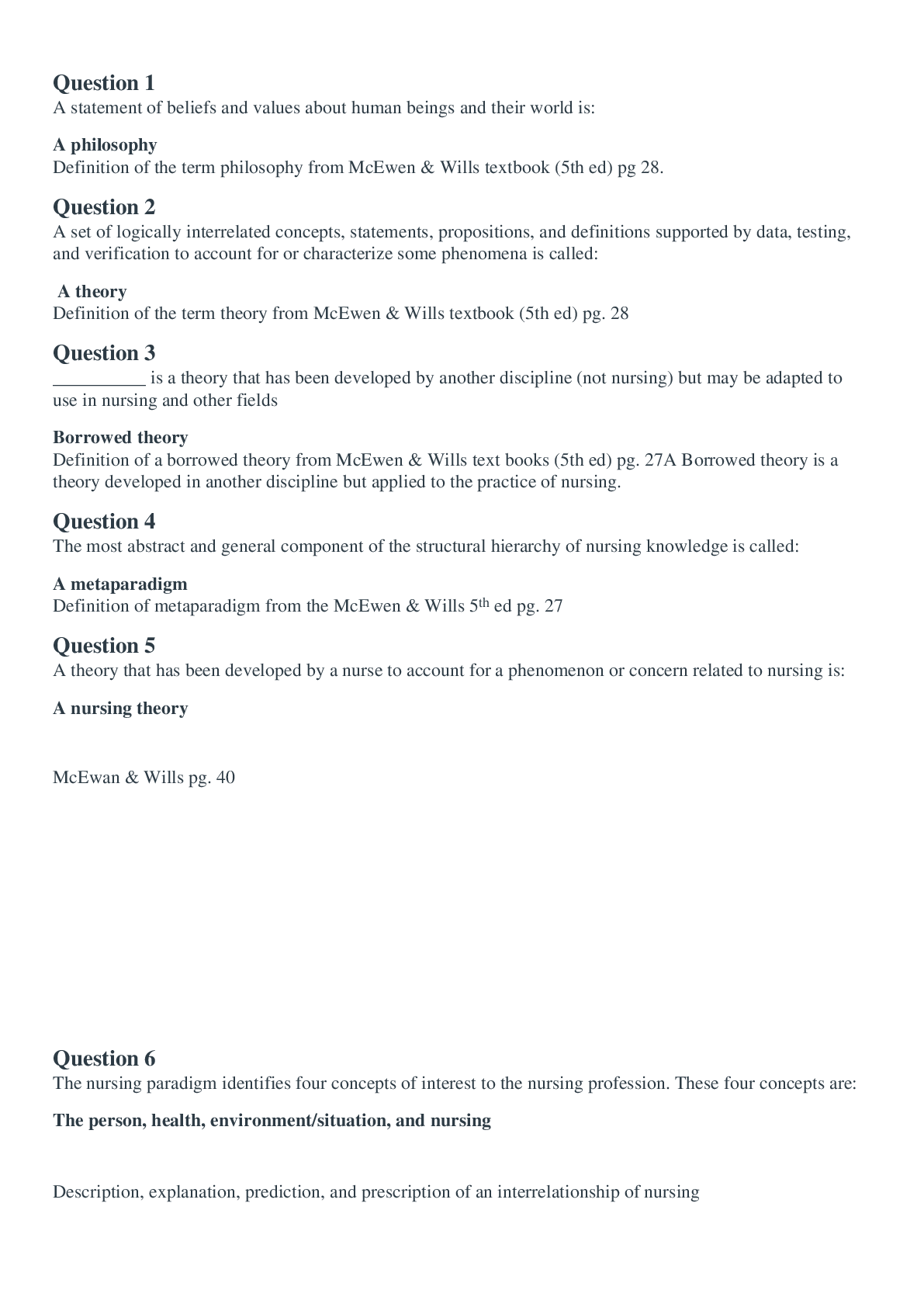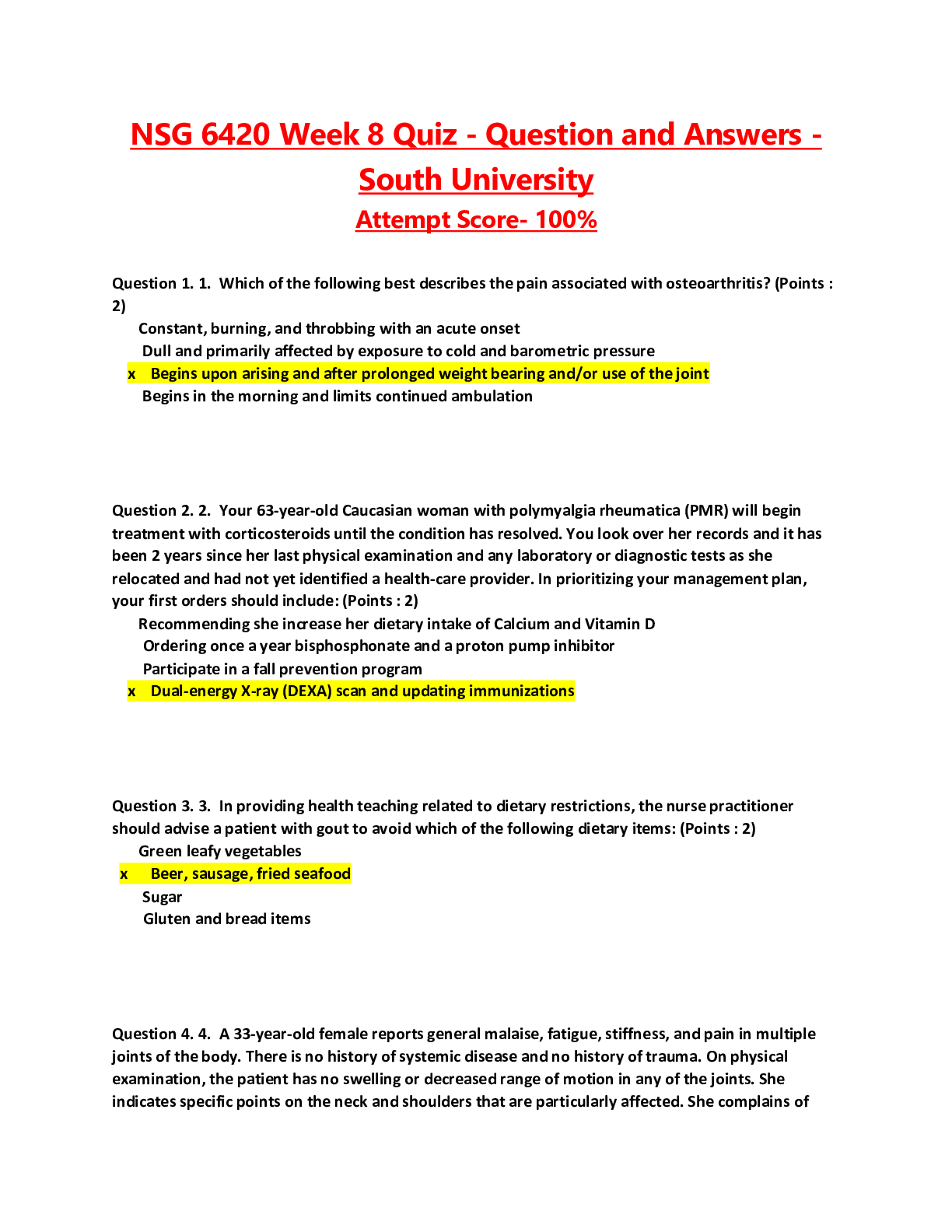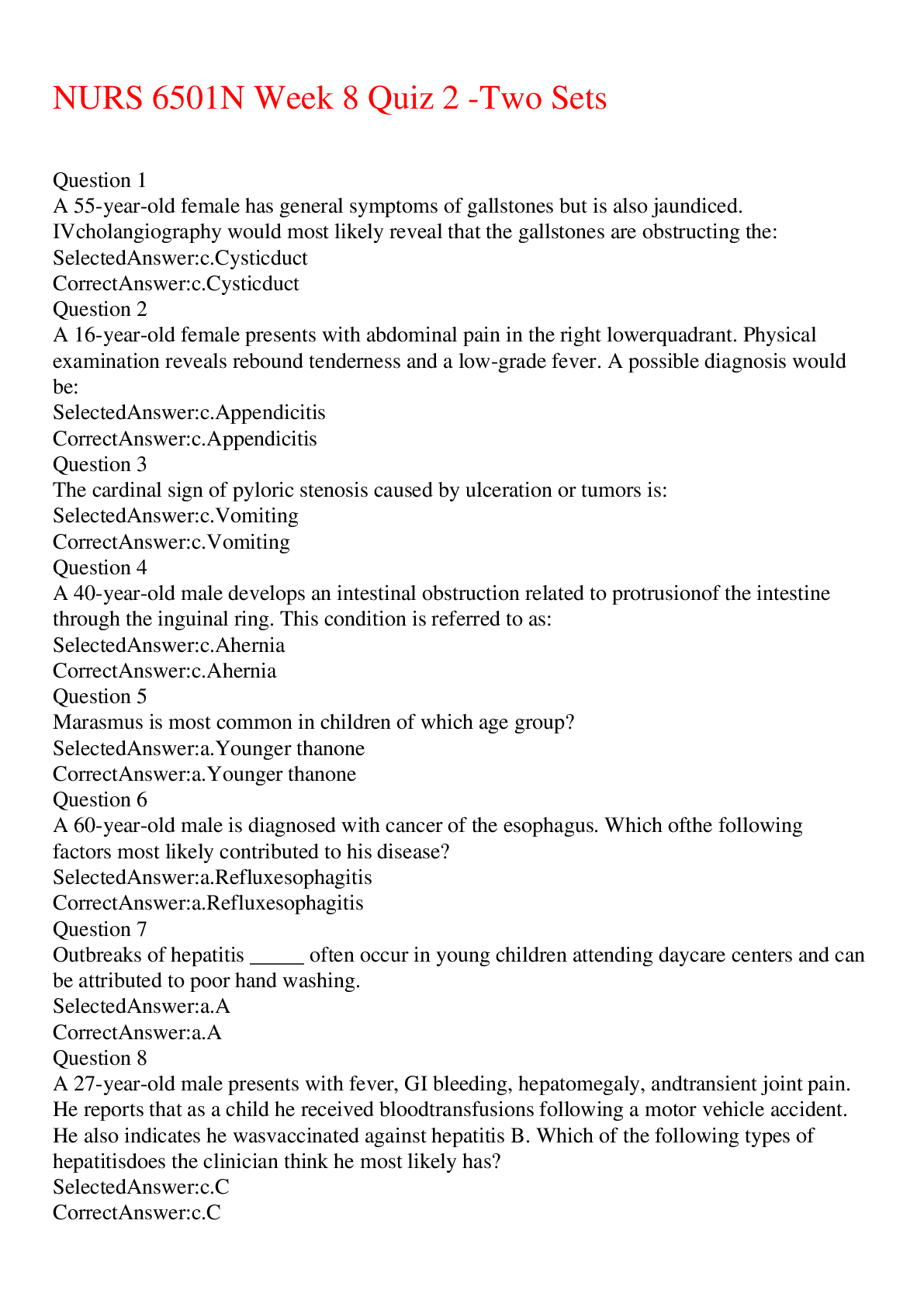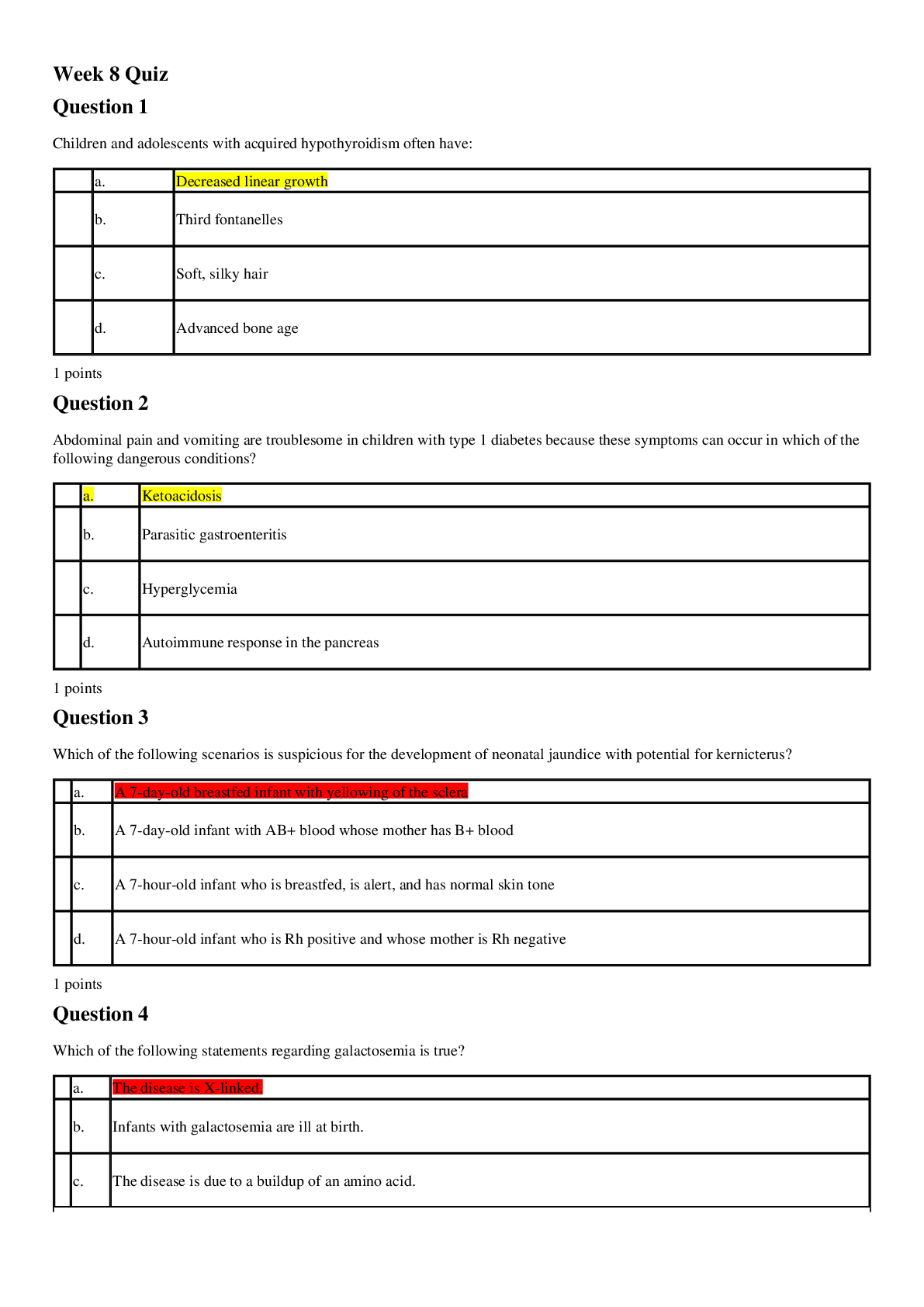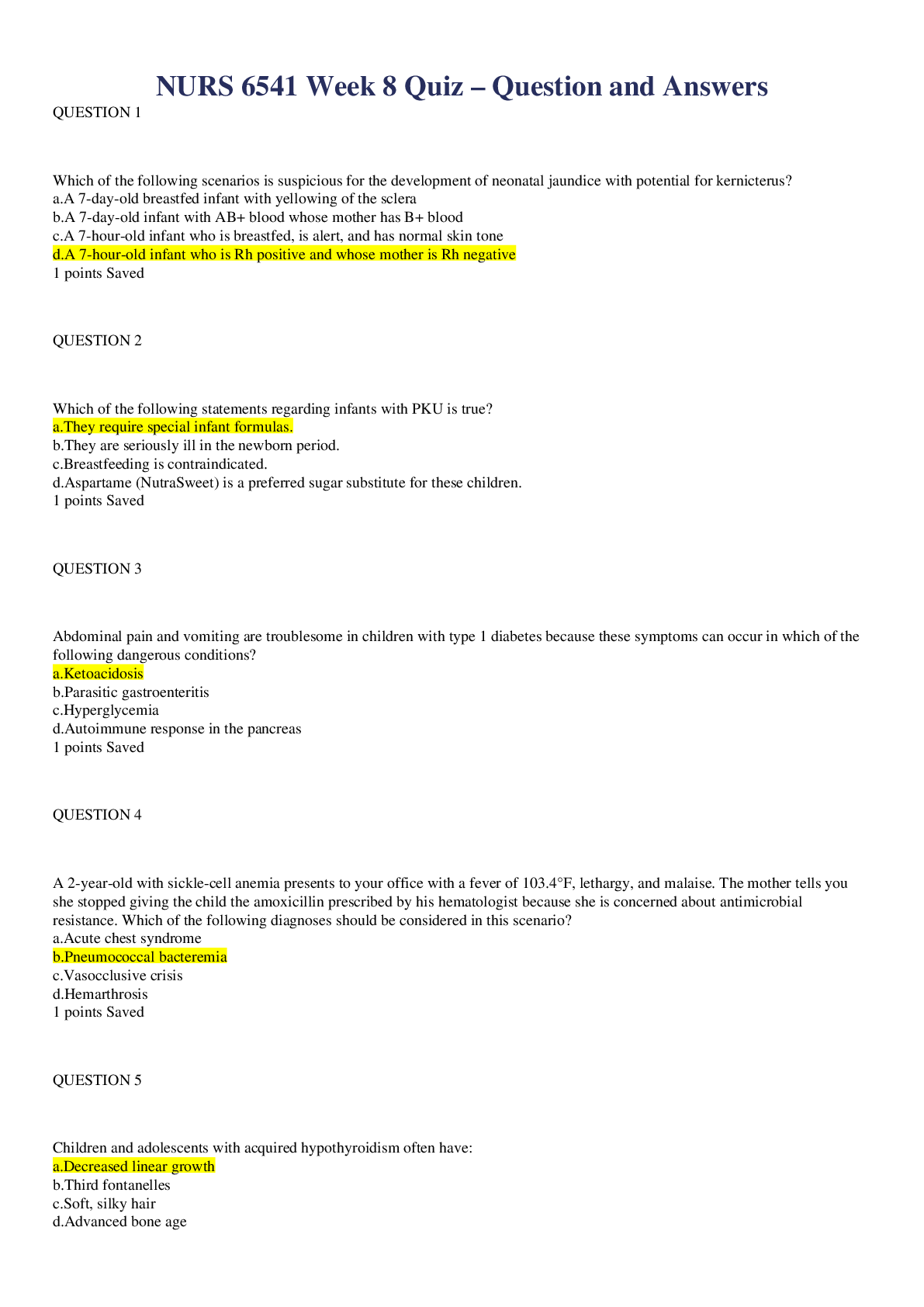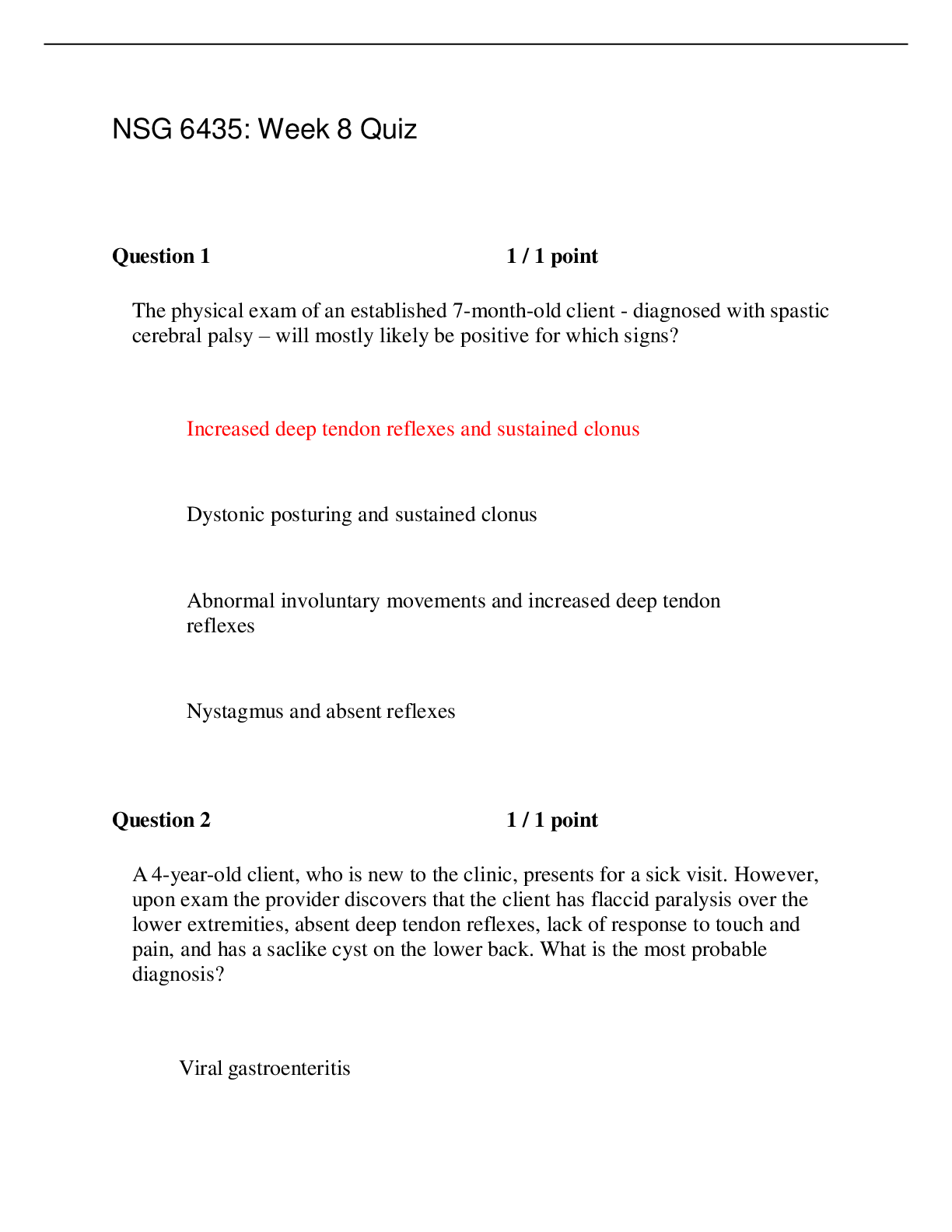Criminology > EXAM > CRJ 220 week 8 quiz 3,100% CORRECT (All)
CRJ 220 week 8 quiz 3,100% CORRECT
Document Content and Description Below
• Question 1 2 out of 2 points To what are we referring when we discuss that, “set of rules governing how people are to treat one another, that rational people will agree to accept, for thei... r mutual benefit, on the condition that others follow those rules as well”? • Question 2 2 out of 2 points “Gut feelings” about right and wrong that seem to arise within our consciousness without us being aware of why or how they arose are sometimes referred to as: • Question 3 2 out of 2 points Altruistic acts are those: • Question 4 2 out of 2 points Psychological and ethical egoism are explanations of human behavior that emphasize the role of __________________ in decision-making. • Question 5 2 out of 2 points Which of the following hypothetical attitudes most closely resembles the notion that life is a "zero-sum game"? • Question 6 2 out of 2 points Values and behaviors that are (or appear to be) shared by all human beings, everywhere, are referred to as: • Question 7 2 out of 2 points When we embody a “wholeness” or, in Plato’s words, “inner balance” in our personal and professional lives which comes from choosing and acting with consistency and in light of a conception of justice and the good life, we could be said to live and work with: • Question 8 2 out of 2 points Which of the following refers to the idea that we sometimes set aside our own interests for the sake of others because we expect that, in the future, others will do the same for us? • Question 9 2 out of 2 points Which of the following concepts might be used to explain why parents are often willing to sacrifice their own interests and welfare for the sake of their children: • Question 10 2 out of 2 points Which of the following refers to a form of human motivation whereby our decisions and actions are motivated primarily (if not exclusively) by our own interests? • Question 11 2 out of 2 points Engaging in lawbreaking behavior to achieve a reputation or gain status among peers would be most consistent with which of the following stages of moral development: • Question 12 2 out of 2 points Which of the following, based in research indicating gender differences in responses to moral dilemmas, suggests that we reserve a greater role for compassion, interpersonal relationships, and concern for and responsiveness to the welfare of others in our moral reasoning? • Question 13 2 out of 2 points According to Kohlberg, which of the following stages of moral development do the vast majority of people fail to reach? • Question 14 2 out of 2 points Though Nazi leaders and war criminals had not committed "crimes" according to German law at the time, we (and the United Nations) might argue that they had committed: • Question 15 2 out of 2 points Using drugs to earn respect from one's peers most closely resembles the reasoning characteristic of which level of moral development? • Question 16 2 out of 2 points According to Kohlberg, which of the following likely plays an important role in our progression through higher stages of moral development? • Question 17 2 out of 2 points Perhaps characteristic of those having reached higher stages of moral development, civil disobedience refers to: • Question 18 2 out of 2 points Carol Gilligan’s work on moral development implies that morality may develop out of two different orientations: a “male” approach focusing on __________________, and a “female” approach grounded in ____________________. • Question 19 2 out of 2 points Which of the following ethical frameworks suggests that morality should be linked to human nature, including a concern for human dignity and universal human rights? • Question 20 2 out of 2 points At which of the following levels of moral development might we place a person whose moral values and principles are self-chosen, arrived at through independent reflection? • Question 21 2 out of 2 points Which of the following concepts best captures the utilitarian notion that each person’s welfare is equally important and, thus, that no one person’s happiness should be regarded as more important than any other person’s? • Question 22 2 out of 2 points Bentham suggested that, when contemplating decisions and actions, we can quantify potential pleasures and pains along a number of dimensions. He referred to this process of quantification as: • Question 23 2 out of 2 points Which of the following refers to the idea that human beings are naturally motivated to maximize pleasure and minimize pain? • Question 24 2 out of 2 points Which of the following principles approves or disapproves of an action according to its tendency to promote happiness for the greatest number of people? • Question 25 2 out of 2 points Though both emphasize consequences, utilitarian differs from ethical egoism in that: • Question 26 2 out of 2 points Which of the following is not a technique of deceptive interrogation? • Question 27 2 out of 2 points Which of the following is a term commonly used to describe corrupt practices by law enforcement officers that are not purely egoistic in nature but, rather, done to achieve the "good" ends of protecting the community? • Question 28 2 out of 2 points Those who utilize the internet (e.g., chat rooms) to exploit children for sexual purposes are commonly referred to as: • Question 29 2 out of 2 points In contrast to Bentham, John Stuart Mill argued that happiness or pleasure should be understood: • Question 30 2 out of 2 points An agreement between a criminal defendant and the prosecution whereby the prosecution reduces charges or recommends a reduced sentence in exchange for a guilty plea is referred to as a: • Question 31 2 out of 2 points For Kant, the focus of the moral life is: • Question 32 2 out of 2 points Prima facie duties are different from categorical duties in that: • Question 33 2 out of 2 points Kantian (deontological) ethics justifies criminal punishment on which of the following grounds: • Question 34 2 out of 2 points Which of the following key deontological concepts refers to the idea that criminal punishment should “fit the crime”? • Question 35 2 out of 2 points __________________ imperatives direct behavior if a desired goal is to be achieved, whereas __________________ imperatives are absolute and ought to be followed always. • Question 36 2 out of 2 points In the context of criminal punishment, desert refers to: • Question 37 2 out of 2 points Things we are morally obligated not to do (e.g., lie, cheat, exploit others) can be termed: • Question 38 2 out of 2 points The idea that we should treat ourselves and others as ends and never as means only is premised upon the more fundamental notion that all human beings have: • Question 39 2 out of 2 points Which of the following serves, in theory, to prevent crime by physically preventing an offender from repeating criminal actions? • Question 40 2 out of 2 points Moral principles or moral rules such as "never kill an innocent human being" might be described as: [Show More]
Last updated: 1 year ago
Preview 1 out of 9 pages
.png)
Reviews( 0 )
Document information
Connected school, study & course
About the document
Uploaded On
Sep 21, 2020
Number of pages
9
Written in
Additional information
This document has been written for:
Uploaded
Sep 21, 2020
Downloads
0
Views
57





